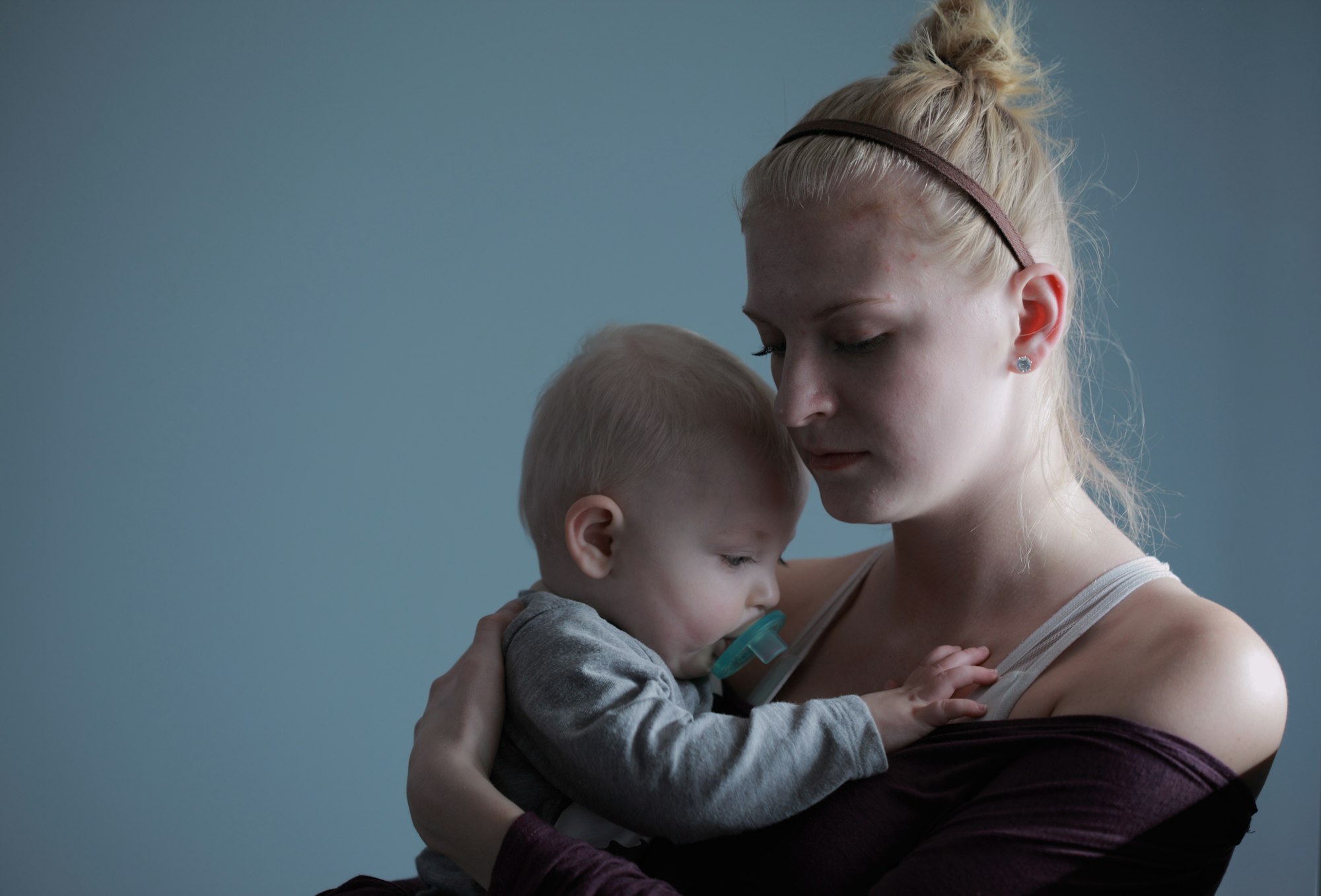Bringing a newborn home transforms the entire, familiar universe of a couple into a mysterious landscape. Suddenly, the air thrums with anticipation, interrupted by moments of exhaustion and silent worries. Many parents wonder if all this turbulence in their relationship is “normal,” especially as the days blur together. Questions linger: Why does our connection feel different? Are these mood swings my partner’s fault—or are we simply overwhelmed? The postpartum blues effects on couple can ripple gently or crash with force, depending on circumstances. Understanding these effects, recognising physical and emotional changes, and learning which red flags to watch for can offer fresh clarity. Across this guide, a deep dive into emotions, science-backed explanations, practical support, and real-world experience empowers you to approach this phase with less confusion and more confidence.
Profound Shifts: The Parent Identity and Couple Dynamics
From the first sleepless nights, a couple’s routine dissolves into the new world of baby care—insert unpredictable crying, frantic searching for pacifiers, and bewildered glances exchanged at 3 a.m. Feeling derailed? That’s physiologically ordinary. Parent identity emerges not overnight, but as a slow fusion of personal history, family traditions, bodily changes, and a powerful need to nurture.
- Becoming a parent is, in a sense, the end of being someone’s child—and the rise of a different self. Yet, this shift isn’t simultaneous for everyone. One partner may feel euphoric, the other anxious or disconnected.
- Dreams dreamt during pregnancy rarely align precisely with reality: babies have their own temperament, couples face unexpected practicalities, and priorities shift on unpredictable timetables.
As one parent recovers from childbirth, and both pour energy into soothing and protecting the infant, tension can quickly escalate. It is common, and not a sign of relationship failure, if intimate conversation shrinks to logistical handovers (“Did you sterilise the bottles?”). The postpartum blues effects on couple are especially pronounced when self-care slides down the priority list. Both may experience heightened need for reassurance, but lack time or words to express it.
Physical and Psychological Landscapes After Birth
For mothers, the days and weeks after delivery are as much about hormones as emotions—a reality often underestimated. The uterus contracts back toward its pre-baby size. Pain (uterine, perineal, breast), stitches, or even minor incontinence often make simple movements daunting. Breasts feel tender and heavy while milk supply regulates. All these physical sensations are part of the physiological postpartum journey.
- Bodily recovery is not instantaneous. The tummy remains soft, pelvic muscles may feel unreliable, and some days, the reflection in the mirror feels unfamiliar.
- Fatigue is not “just tiredness.” Studies show that women recovering from childbirth often display elevated levels of cortisol and fluctuating thyroid hormones, intensifying mood swings.
Body image takes a hit—mothers may not feel attractive, provoking further withdrawal and difficulty seeking affection. Sexual appetite may reduce, and some find even the thought of intimacy stressful. The postpartum blues effects on couple can escalate if desire is mismatched or expectations go unspoken. Simple pelvic floor exercises and medical follow-ups form the backbone of physical recuperation; emotional healing, though, tends to require more conversation and patience, not just between mother and partner, but also with oneself.
Postpartum Blues: Medical Definitions, Biological Roots, and Risk Pointers
Immediately after childbirth, the hormonal environment inside the body undergoes a dramatic reshuffle. Oestrogen and progesterone, which have held steady for months, suddenly crash—triggering a chemical cascade believed to underpin the classic symptoms of baby blues:
- Mood swings
- Irritability
- Tearfulness
- Anxiety
- Difficulty sleeping or concentrating
- Withdrawal
The clinical description designates this as postpartum blues—transient and self-resolving in most cases. Typically, symptoms surface around day two or three and fade within two weeks. Unlike postnatal depression, postpartum blues rarely require medication.
Several recognised risk factors intensify vulnerability:
- Unplanned pregnancies
- Multiple births
- Chronic stress
- Social isolation
- Pre-existing psychological conditions
- Difficult or traumatic childbirth
Even partners are at risk, especially in today’s demanding climates. Research documents that up to one in ten partners, mostly fathers, experience parallel symptoms, reflecting the postpartum blues effects on couple irrespective of gender.
The Emotional Earthquake: Mood, Communication, and Connection
Few transitions are as emotionally loaded as new parenthood. Mood upswings may alternate with periods of apathy or withdrawal. Fatigue eats away at attention spans, and irritability becomes the uninvited houseguest.
You might notice:
- Conversation reduces to baby logistics
- Arguments ignite over chores or support
- Touch and intimacy pause as each partner recalibrates
One parent’s sadness or anxiety may evoke confusion, frustration, or distance in the other. In many instances, partners hesitate to speak openly about feeling helpless or stressed, anxious they might worsen the situation. The postpartum blues effects on couple are visible through a subtle yet undeniable erosion in communication. You may find yourself asking: “Why does my partner seem so far away, even in the same room?” Or, “Am I doing something wrong?” Often, both are simply overwhelmed, trapped inside their own exhaustion.
Practical Challenges: Balancing Parenthood, Roles, and Finances
As the new rhythm settles, the couple’s dynamic revolves around baby care and household management. Classic points of friction:
- Distribution of chores—especially at night, when both are exhausted
- Financial stress as new costs (diapers, medical bills) and potential income interruptions stack up
- Feeling inadequate over perceived “failures,” when baby doesn’t respond or routines fall apart
List of adaptation strategies:
- Rotating shifts for baby care, if possible, so both parents rest
- Using technology or family support to delegate repetitive chores
- Open, honest discussion about money and expectations—yes, even when it feels uncomfortable
Not all households have grandparental help at the ready; some have a strong community, while others must set their own boundaries. Changing roles—especially when expectations collide with lived experience—require flexibility and generosity, with yourself and each other.
Intimacy and Sexual Recovery: From Distance to Reconnection
Hormones, pain, and persistent fatigue set the stage for lower sexual desire in almost every case. It’s natural; the body focuses its resources on healing and nurturing the newborn.
But, this can quickly become a point of stress. Some partners misinterpret sexual pause as rejection. Emotional distance may creep in. Restoration of intimacy starts with acknowledgment—not every conversation has to be about baby care. Gentle physical touch (a hug, a caress on the arm) re-establishes comfort. When medical recovery timelines are extended (due to stitches, pain, or infection), discussing alternative ways to maintain closeness could help.
Postpartum blues effects on couple deepen when efforts to reconnect are mismatched or met with shame. Transparent, ongoing dialogue is your strongest tool; patience is not only a virtue but a necessity.
Father’s and Partner’s Experience: Parallel Struggles
Contrary to popular belief, the non-birthing parent isn’t just a bystander. They may face their own version of the baby blues—manifesting as sadness, withdrawal, irritability, or anxiety. Frequently, partners oscillate between wanting to help and feeling like nothing they do matters. Balancing support for the recovering partner, adjusting to new roles, and confronting interrupted sleep or career changes can lead to their own psychological stress.
Indicators such as increased arguments, abrupt silences, or spells of avoidance signal that the postpartum blues effects on couple are bi-directional. Joint actions, such as shared check-ins (even if brief), participating in care routines, and validating each other’s concerns, build a mutual base of strength.
Cultural, Social, and Gender Pressures
Cultural traditions and family expectations deeply influence the postpartum journey—sometimes for better, sometimes increasing isolation or stress. Societal myths that a mother must always be joyful, or that fathers never “crack,” amplify feelings of shame or inadequacy.
In some societies, extended family can offer a buffer against fatigue and confusion—while in others, modern life leaves parents to manage alone. Stigma about mental health remains widespread, and seeking help is sometimes perceived as weakness. When both parents share responsibility (not only in action but also in emotional labor), the postpartum blues effects on couple become easier to overcome.
Communication and Conflict: Strategies for Reconnection
Disagreements over who is “doing enough,” misunderstandings about affection, and overlooked emotional needs all swell in the early months. Key intentional habits help:
- Schedule time for real conversation, even if brief
- Use “I feel…” phrases to reduce accidental blame
- Name fatigue and emotion for what they are—temporary, not personal
- If barriers persist, consider support from a professional counselor or support group
Medical evidence highlights the value of prevention: when parents know the postpartum blues effects on couple, they are prepared for turbulence and less likely to spiral into misunderstanding.
Long-term Prospects: Emotional and Family Health
For most, postpartum blues fade into clearer days, and the couple’s relationship gradually finds new strength. When depression deepens or relationship strain persists, risk emerges for both parents and babies—impacting emotional availability and even the attachment between caregiver and child.
Medical professionals underscore that stable, supportive relationships improve outcomes for the entire family. Unchecked parental distress can translate into behavioral or learning difficulties for children later on. Early recognition and connected care—counseling, medical guidance, or simply trusted conversations—offer hopeful pathways.
Key Takeaways
- Postpartum blues effects on couple best understood as temporary, medically recognised, and quite common—affecting both communication and closeness.
- Open, gentle communication and sharing household and childcare responsibilities foster recovery and renew emotional connection.
- Supportive partners are instrumental for healing, regardless of gender or family structure.
- Seeking help is a mark of strength. Numerous professionals and credible resources are ready to assist.
- Early, honest conversation about mood swings and role changes reduces confusion; ongoing education makes every parent a stronger advocate for their family.
- For free health advice for your child and personalized support, download the Heloa app.
Questions Parents Ask
How do postpartum blues effects on couple impact communication between partners?
Emotional ups and downs trigger shorter temper, reduced patience, and the tendency to “let things slide”—meaning candid conversations often get skipped. It’s routine to feel misunderstood, or to struggle finding the right words. Checking in with each other, even in five-minute increments, helps maintain warmth and empathy.
What can partners do to support one another during this time?
Simple actions can be surprisingly powerful: offer to watch the baby so the other can sleep, encourage your partner to share what they feel, and acknowledge each other’s frustrations with a nod or kind word. Listening—truly listening—lays the foundation for mutual comfort. If sadness lingers or seems heavy, reaching out to close friends, relatives, or a health professional is wise.
Can postpartum blues effects on couple influence the bond with baby?
Absolutely—temporary mood disturbances can cloud the sense of connection. Fatigue and stress might make bonding feel awkward or “not enough.” Medical research shows that as symptoms fade (often within days or two weeks), most parents settle into meaningful attachment with their baby. If sensations of disconnection persist, consult your practitioner for reassurance and support.
[]









